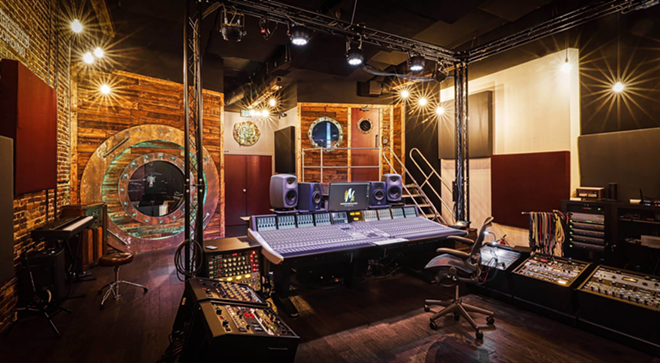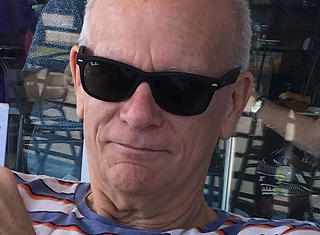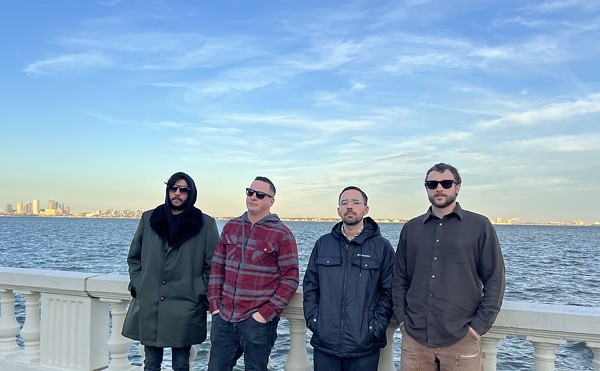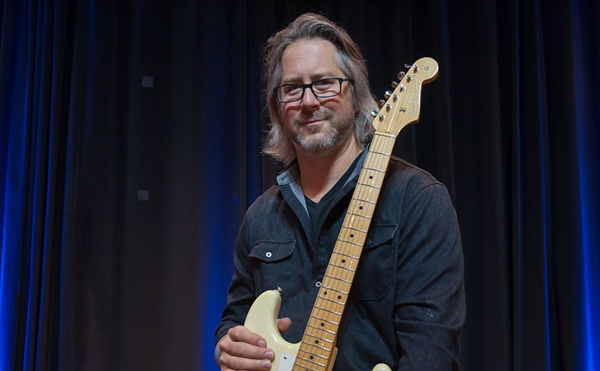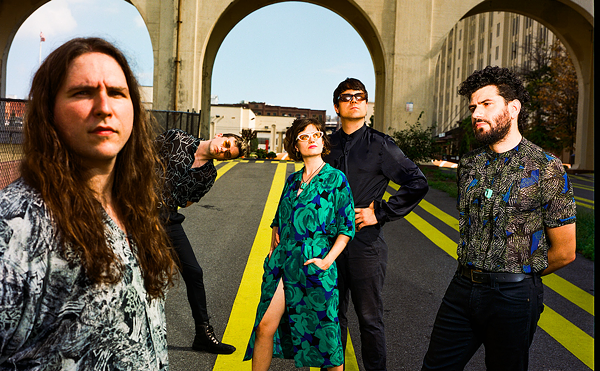When an ever increasing number of Bay area acts started self-releasing albums in the 1980s, most of them sounded like crap, full of punchless drum tracks, meager bass, flattened guitars and OK vocals. That was unless the band ponied up some extra dough and booked sessions at Morrisound Studios in Tampa. The facility, founded and run by brothers Tom and Jim Morris, had acoustic properties and equipment that rivaled the major New York and L.A. studios used by major-label acts.
The Morris brothers came up from South Florida in the ‘70s to study engineering at the University of South Florida. They had ties to Tampa Bay. Their grandfather, M.L. Price, played organ for silent movies at Tampa Theater in the early 20th century and owned the M.L. Price Music Co., the city’s biggest music store in the 1920s and ‘30s. Tom and Jim played guitar in bands, made local contacts. They began their recording work with a mobile 8-track system in a van. The tandem founded their first brick-and-mortar studio in 1981.
Shortly after, a local metal band called Avatar recorded an independent album there, and drew interest from major labels. After changing its name to Savatage, the group got signed to Atlantic Records and continued to record at Morrisound. Word spread among rivet-heads that the studio and the brothers, along with house producer Scott Burns, could capture the thunderous but balanced sound that metal required. Bands from the burgeoning Florida death-metal scene flocked to the studio. The music wasn’t easy to record. Everything had to be huge. And louder than loud.
It’s easy to scoff at Tampa’s reign as the death metal capital of the world in the ’80s and ‘90s, but that would be myopic and flat-out wrong. Death-metal is underground cult music, and appeals to a limited group of rabid fans, but it became a world-wide phenomenon thanks in large part to Morrisound. Go ahead and chuckle at the names if you want: Napalm Death, Obituary, Death, Morbid Angel, Cannibal Corpse, Sepultura, Atheist, Deicide—all played a significant role in developing an extreme rock genre that showcased ultra-fast tempos, octopus-like drumming, guitar wizardry and vocals that sounded as if they were spewed by 12-foot demons. The genre’s satanic themes scared the hell of regular folks, and that has to count for something.
“When you look at the history of death metal, most of the albums that are today considered essential classics were recorded at Morrisound,” music historian James Quirk told the Tampa Bay Times in 2016.
In 1985, the brothers moved their operation to an empty wooded lot near USF and built a much larger, multi-room facility. At some point, Tom and Jim grew concerned about being pigeonholed as strictly a metal studio, so they made a concerted effort to diversify. The market’s leading rock station, 95YNF, presented a show, "Live from Morrisound,” showcasing sets by local acts. Many live broadcasts from the syndicated “Rockline” radio program came out of Morrisound, including performances by Little Feat, Robert Plant, Ozzy Osbourne and Third Eye Blind.
Morrisound did a robust business in jingles and other commercial projects, but original music remained the Morris brothers’ priority. In ensuing years, they recorded the music of Chuck Owen & the Jazz Surge, a large ensemble based at USF. In 2014, the big band’s album River Runs: A Concerto for Jazz Guitar, Saxophone & Orchestra was nominated for two Grammys. Other studio credits include Warrant’s Dog Eat Dog, Destiny’s Child’s 8 Days of Christmas, Iced Earth’s Alive in Athens, and, in 1995, the multi-platinum American Standard by Seven Mary Three. Morrisound became the recording home base for operatic rock band Trans-Siberan Orchestra—two of its founding members, Jon Oliva and Al Pitrelli, had also been founding members of Avatar/Savatage.
In the 2000s, with the rise of quality home-recording, Morrisound’s capacious digs had become outmoded and expensive to keep up. In 2011, the studio was burglarized and criminal scum made off with hundreds of thousands of dollars worth of equipment and instruments, as well as platinum and gold records.
A few years later, Trans-Siberian Orchestra considered leasing the facility for a major project but, after running the numbers, realized it made more sense to buy the place. The Morris Brothers signed it over in 2015.
However—Morrisound lives on. The brothers repurposed a small, 1920s-era bank building in Sulphur Springs into a smaller studio that’s more in keeping with the times. The new space is marked by an “immersive recording” concept where the producer and engineer are not separated by a control both but instead remain in the middle of the action along with the talent.
Morrisound, and the brothers themselves—as producers and engineers—have been major contributors to the Tampa bay music scene for four decades. Their sterling legacy is secure, but not yet fully written.
See all winners from Best of the Bay 2020.
Support local journalism in these crazy days. Our small but mighty team is working tirelessly to bring you up to the minute news on how Coronavirus is affecting Tampa and surrounding areas. Please consider making a one time or monthly donation to help support our staff. Every little bit helps.
Subscribe to our newsletter and follow @cl_tampabay on Twitter. Follow Creative Loafing Tampa Bay on Google News, too.

